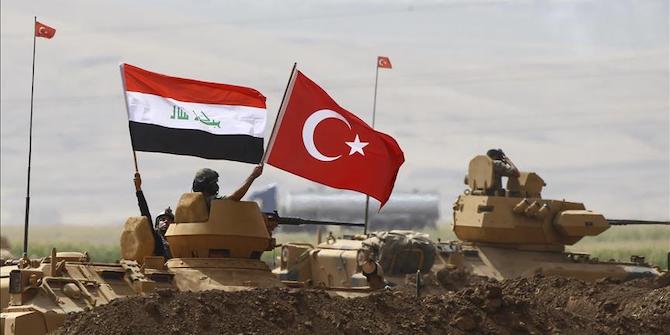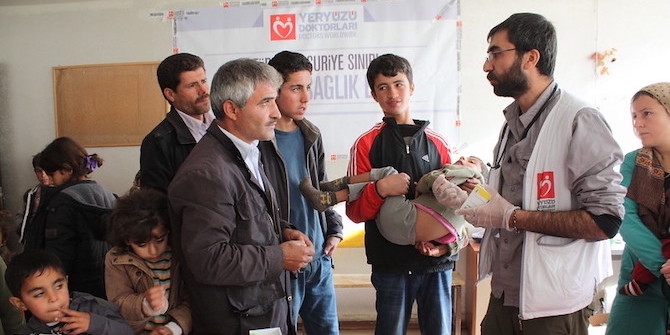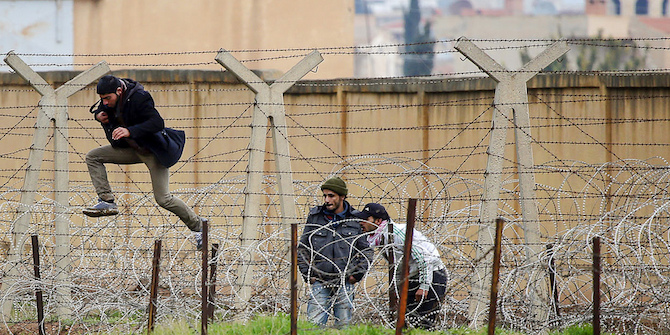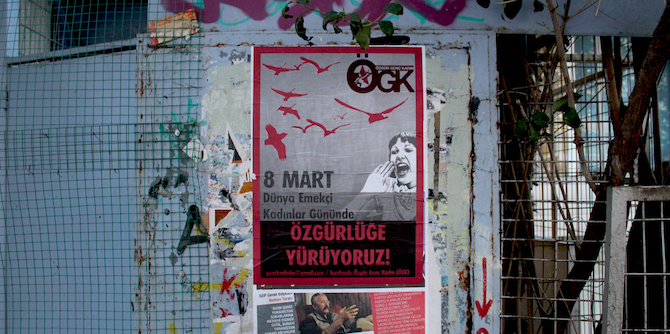by Hayder Al-Khafaji

In recent years, Turkey has deliberately changed its global foreign policy strategy, including its engagement with the Middle East, from a focus on hard power to soft power, all with the aim of increasing its erstwhile influence in the Middle East and extending its reach in countries of particular interest, especially Iraq.
Turkish foreign policy during the 1990s focussed heavily on military affairs, during which time it launched one of the largest armed operations in its history against Kurdistan Workers’ Party (PKK) bases in northern Iraq. However, the rise to power of the Justice and Development Party (AKP), and with it the fortunes of Recep Tayyip Erdogan, heralded a new era in Turkish politics, and saw Ankara redirect its efforts towards soft power by pursuing trade and cultural engagements instead of military adventurism against neighbouring countries.
Currently Turkey is focused on projecting power in Iraq, an arena already being contested by America and Iran. In this project Ankara has had great success, and even greater gains may be on the horizon. Through the pursuit of this new diplomacy Turkey has established a firm foothold in Iraq, a country which continues to face many political and economic troubles.
Turkey’s influence in Iraq is increasingly greater than that of either Iran or America, along with others among Iraq’s neighbours. Though its sway remains less than the combined Iranian-American influence, it has nevertheless grown and expanded at a greater pace than that of either these countries. Since 2003, the US has spent an estimated $2 trillion on financing the war in Iraq. The US Department of Defense received about $838 billion in funding for ‘foreign emergency operations’ in Iraq during the 2019 fiscal year alone. Notwithstanding this, the US has failed to achieve anything like the political, economic and military gains that Ankara achieved in Iraq over the same period.
Turkey also rivals Iran in the amount it exports to Iraq, having proven its ability to meet Iraqi demand for engineering goods, technical services and through participation in investment projects, all according to European standards.
Tehran is understandably wary of this economic intrusion, with Iranian sources revealing that the country’s exports to the Iraqi market have declined considerably. The head of the Joint Iranian-Iraqi Chamber of Commerce, Yahya al-Ishaq, revealed that, ‘the value of commodity exports to Iraq amounted to $5.7 billion during the nine month period between March to December 2020, whereas the aim was to reach a target of $20 billion.’ This appears directly related to Turkey’s entry into the Iraqi market. Turkey has treated this as a major opportunity, deploying various tools of soft power, such as culture, education, trade, and economics in pursuit of a long-lasting legacy in Iraq to rival that of any other power.
Turkey has come to realise that the best means for exploiting the opportunities available in the midst of such turbulent circumstances and factional disagreements – mostly as a result of the American military presence and Iran’s interference in Iraq’s internal affairs – are through the tools of soft power, since the majority of the Iraqi people’s woes relate to deterioration in the economic, services and security situations. As such, Turkey has focused on the opposite end of the spectrum (despite the various declarations by Turkish officials that their goals were merely complementary to the country’s needs), a stance that has proved to be both intelligent and mutually beneficial.
In a joint press conference with Iraq’s prime minister, Turkish President Erdogan emphasised protecting the territorial integrity of Iraq and its political structures, along with his country’s readiness to support the reconstruction efforts, saying: ‘We consider all … of the Iraqi people to be our brothers, regardless of sect or ethnicity, and we are capable of achieving the goal of raising the volume of bilateral trade to 20 billion dollars annually. … By repairing the pipeline that ISIS destroyed, we hope to pump more of Kirkuk’s oil into the global markets. …. The water issue should be grounds for cooperation and not a cause for conflict.’
This stance will undoubtedly resonate well among various Iraqi forums. In this regard, Turkey has already implemented certain measures intended to secure its interests. In light of Iraq’s deteriorating economic conditions, Turkey has offered itself as a gateway to Europe. At the same time, Turkey is working to secure Iraq’s energy needs. The majority of Iraq’s oil reserves are located in the south of the country, with 60 percent in the Basra region and exports of approximately 3 million barrels of oil per day. Turkey has accordingly constructed a pipeline that extends from Kirkuk, Iraq, to the Turkish port of Ceyhan, which is now transporting approximately 25 percent of Iraq’s oil exports.
Intellectual and cultural issues have also risen to the fore within the context of Turkish diplomacy. The impact of previous Turkish policies towards Iraq continue to foster suspicion in some quarters, especially the provision of support to terrorist groups, while creating the conditions and providing the means for them to enter Iraq. This issue cast a long shadow over Turkish-Iraqi relations during the war against ISIS and other terrorist groups. At any rate, today, in return for granting Iraq a number of concessions over the waters of the Tigris and Euphrates rivers, Turkey enjoys three important privileges, namely: extensive economic, political and cultural influence in Iraq; control over the borderlands between the two countries; and the curtailing of Iranian influence in Iraq.
Iraqi markets, before the May 2018 withdrawal of former US President Donald Trump from the JCPOA nuclear deal, were largely in the grip of Iran, which made it possible for Tehran to circumvent some of the sanctions then in place. However, since then the markets have been steadily distancing themselves from Iran, and are instead increasingly under the control of the other two regional rivals, namely Turkey and Saudi Arabia.
In conclusion, will we soon see Iraq become another Azerbaijan? Given the propitious circumstances, it is not unlikely that Turkey will increase its influence more rapidly and entice Iraq further into its regional orbit, through realising tangible gains for the Iraqi people in terms of economic wellbeing, while Ankara continues to cement its own political gains in the country.






